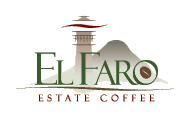Waste Management
In an attempt to minimize the environmental impacts generated from both chemical and organic waste in the production of coffee, Finca El Faro has strongly applied the principles of reduction, reuse and recycling.
The recycle of all the organic waste generated by Finca El Faro and close by neighbors is being accomplished by the employment of worms. We established the infrastructure necessary to transform all organic waste into an extraordinary organic fertilizer. Currently this operation is recycling 3,375 tons of organic waste. All organic waste is transformed into worm castings, which are applied to coffee plants as a source of nutrition.
Coffee husks generated from pergamino are not used as worm food, however, we employ them as temperature insulators in between the walls of coffee warehouses. In addition, husks are used as a source of heat for the drying process of coffee beans.
The reuse and reduction of potential contaminants such as plastic bags, plastic containers, etc. is taking place as we speak. For example: Plastic bags employed in the fabrication of coffee nurseries, have been replaced by plastic tubes that are reusable for up fifteen years. Fertilizer bags are used for coffee harvesting once they have been submitted to a proper process of cleansing, in order to avoid the contamination of the coffee, the worker, and the environment. In addition, these bags are used for worm castings packaging.
All plastic and tin containers derived from chemicals and fertilizers are employed as trashcans in order to classify and recycle waste. We strongly prohibit the use of these containers as water carriers or any other household use. The practice of waste classification has been imposed since the year 1999, in an attempt to separate glass, plastic, metals and organic waste from one another.
To accomplish the goal of establishing efficient waste management principles, we have conducted educational seminars periodically, incorporating the entire staff and their respective families.
